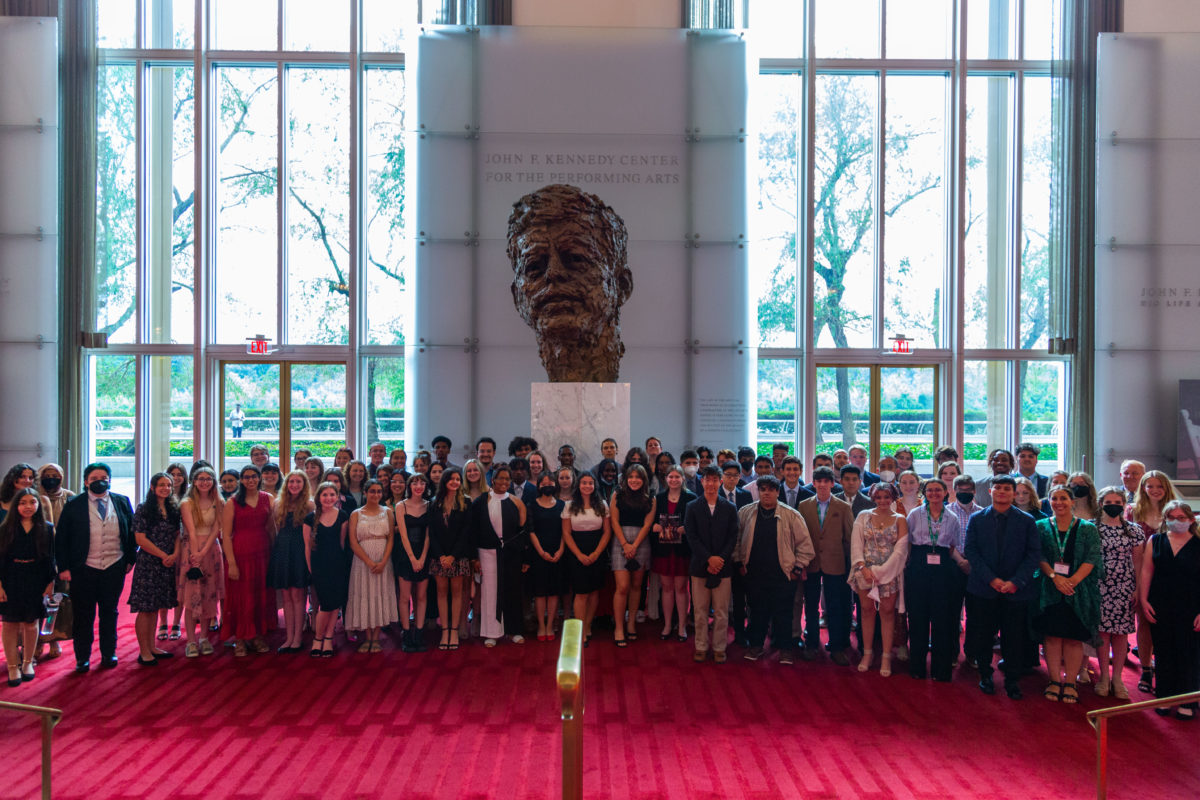As we all rushed to get ready just an hour before our scheduled time to leave, everyone was alive with excitement. We all had our best outfits on and all you could see was people taking pictures. As we boarded buses the anticipation grew even more, because we knew we were getting closer. From catching a glimpse of Marine One to seeing the Washington Monument, you could smell the excitement in the air.
Places like the Kennedy Center present a wonderful opportunity for passion, words, and action to connect. More than that, these are spaces where opportunity and potential are realized, further where opportunity is discovered by those least expecting it. One who reads To Kill a Mockingbird finds themselves in deep contemplation, perhaps struggling with the morality of our past as moments of hatred display themselves through words. They watch it, and find themselves immersed in a place of heartache, where a story comes alive in light of real moments seen paralleled today in the world we live in.
We took the elevator to the terrace and were at a loss for words as we walked out and looked around. It was so mesmerizing to see so many parts of America’s history all at once. We finished dinner and began to line up to receive our tickets. Entering, we all imagined the many world leaders that had been in that same theater right above us. The lights dimmed, the curtain rose and the play began.
Atticus Finch’s daughter, Scout, came to view, and she began to speak. We soon realized she would narrate to us through the performance, which concerns a lawyer defending an African-American man, who was accused of raping a white woman in Alabama during the year 1934.
In the strongest words possible, our group came dressed up to watch a murder along with thousands. We spent hours laughing and complementing outfits to drive to a location of high performing arts in DC. Many came with expectations of finding the most impactful moments of an entire summer. Honestly, Harper Lee’s story delivered. I sat overwhelmed at the complete contrast of sitting in an audience of mostly white and privileged individuals while watching human rights violations that were ignored for many, many years. I grasped at straws to find hope while watching the biased proceedings of the rape case in a racist Southern US found not too long ago in history.
Immediately, Atticus and his children became the targets of dissension because of his decision to defend a black man. Told from their perspective, the children had to hear their father being called all types of things as he tried to protect his client, himself, and them. In the end, the justice system and jury of all white men did Tom Robinson no justice, as he was found guilty and convicted of a rape that never happened based upon the testimony of a dishonest woman from an abusive background. He proceeded to be put in prison and attempted an escape that would result in the end of his life. Following the performance came silence on buses as we drove back to campus trying to find… something. I watched and listened to conversations being held, people processing as a community the way we acknowledge brokenness and step forward from it. Many were shocked at the responsive laughter given by the audience as terrible events were played out on a stage with real structure and purpose.
I am under the impression that this country has a long way to go in acknowledging the impacts of history on individuals as well as society as a whole. Rape, racism and court bias are issues that need to be acknowledged not just in the past but here, now, today. Why would we seek relief from being uncomfortable when something puts perspective on the reality of such events? To Kill a Mockingbird speaks a real story of real people, and I hope we as a society will learn to take blows to our pride and history to find a fuller picture, to find understanding and compassion and regret. National History Academy gives the opportunity to hit at hard issues and search for solutions. This specific experience brought so many powerful thoughts to the forefront, for which I am incredibly grateful.
